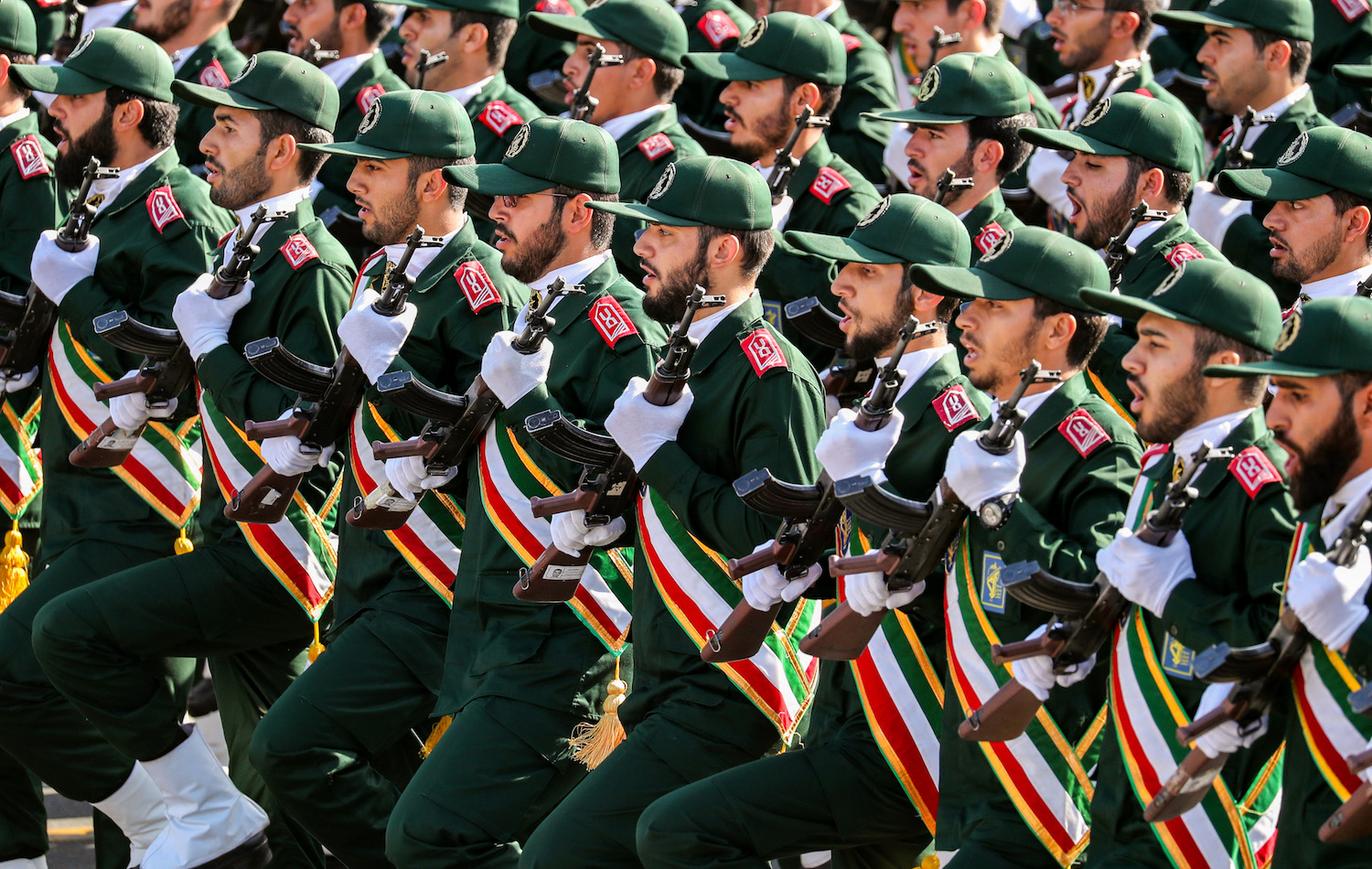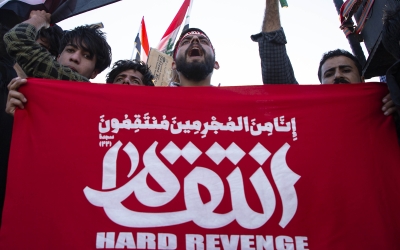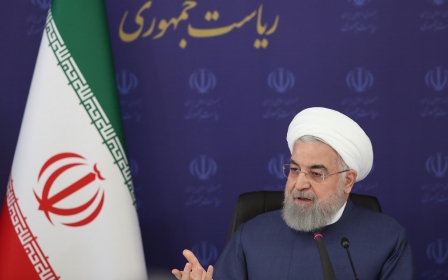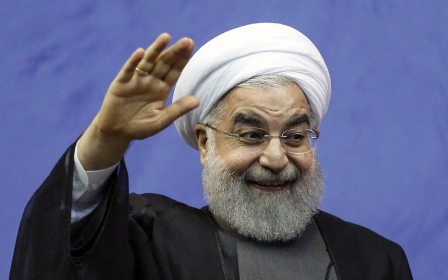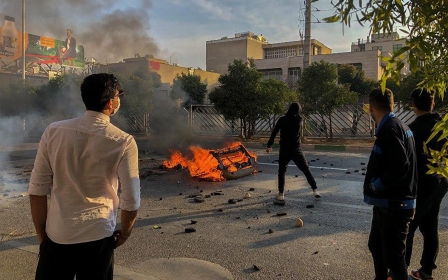Iran: What will happen when the conservatives take complete control?
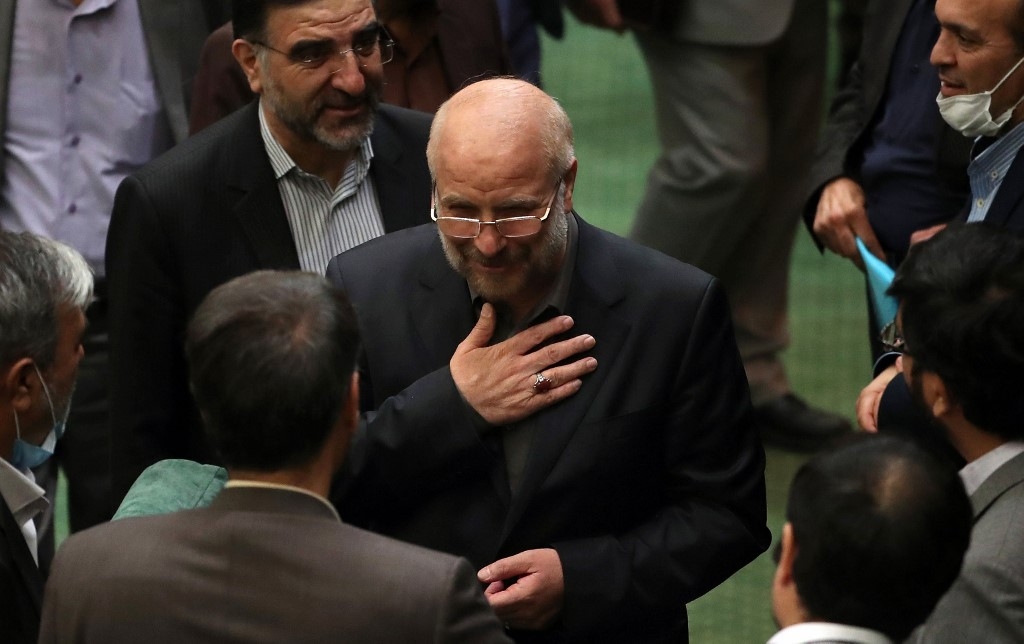
Iran’s new parliament, dominated by conservative elements, was recently inaugurated. Mohammad Bagher Ghalibaf, a former senior member of the Islamic Revolutionary Guard Corps (IRGC) and three-time loser of presidential races, was elected as the speaker.
As a sign of things to come, in his first speech, Ghalibaf attacked President Hassan Rouhani for his tendency to look outside of Iran for solutions to its problems, and for his lack of faith in the resistance economy as a better alternative. Ghalibaf also characterised talks with the United States as being harmful to Iran.
It is hard to assess whether these statements reflect the new parliament’s real intentions, or whether they are merely the opening salvo for next year’s presidential election.
Regardless, Ghalibaf’s remarks reflect a shift in Iranian politics and discourse in a hardline direction, suggesting that Iran’s next president will likely be a conservative. Should this happen, conservatives would control all three branches of government.
It is possible that even the presidency could be eliminated, in favour of a prime minister as the chief executive. Not being elected by popular vote, a prime minister would have less power and popular legitimacy than a president, and thus would be no rival for the supreme leader.
New MEE newsletter: Jerusalem Dispatch
Sign up to get the latest insights and analysis on Israel-Palestine, alongside Turkey Unpacked and other MEE newsletters
Without a president to blame, the real centres of power and decision-making would become answerable for their failures
Because of the skewed nature of the balance of power and authority in Iran against the president, such a change could be positive. Without a president to blame, the real centres of power and decision-making would become answerable for their failures, and the lines of authority and responsibility would become clearer.
Yet, changing from a presidential to a parliamentary system, and having conservatives in control of all branches of government, would not resolve Iran’s problems and challenges. Their roots lie elsewhere, including the lack of a national outlook among Iran’s leadership, the disorganised conditions of its administrative and economic structures, and the existence of parallel institutions with competing goals and interests.
Diverging interests
Paramount among the parallel institutions is the IRGC and its economic arms, with diverging domestic and foreign policy priorities. IRGC's first priority is to defend the regime and the revolution.
Next in the IRGC’s order of priorities is to retain and expand its control over the country’s economy, and to enrich itself and its clerical and secular allies. It actively competes with governments in power. During the worst of the coronavirus crisis, the IRGC tried to show how it was more efficient than the government in helping people, while the government was blamed for all shortcomings.
In an ominous sign for the country’s future stability, the commander of the Iranian navy recently criticised the IRGC’s involvement in the state’s economy and politics, complaining that the regular army’s role in the Iran-Iraq war has not been appreciated.
The IRGC opposed the 2015 nuclear deal, concerned that an economic and political opening would erode its stranglehold on Iran’s economy and politics. It opposes enabling many wealthy expatriates to invest in Iran, or tens of thousands of well-trained Iranians to serve their country.
Its intelligence arm is instrumental in arresting many Iranian academics and experts. This discourages expatriate Iranians from coming back.
Flight of people and capital
The IRGC emphasises the resistance economy, while what Iran really needs to develop is capital, technology, and the ability to transact with global financial markets. Its band-aid approach to the economy ignores these facts.
Meanwhile, the conservatives' restrictive cultural policies, alongside a failed economy, have led to the flight of people and capital from Iran. Iranians have been a major boost to Turkey’s housing market, for example.
Ironically, the Iranian government recently said that foreign investors should be encouraged by offering them a five-year residency permit; it did not address why, when Iranians are leaving in droves, any investor would seek residency in the country.
Whatever the method employed, the main objective of most states’ foreign policies is traditionally to achieve territorial, human and economic security. States often work for the advancement of causes, but when such projects endanger their territorial integrity and national wellbeing, they are typically abandoned.
Iran, however, has pursued an ideologically determined, universalist foreign policy, with what has been perceived as highly damaging consequences for its national interests. The centrepiece has been the question of the liberation of Palestine, even when Arabs and other Muslims no longer prioritise this issue.
Iran’s stance on this issue and the question of Israeli statehood is behind its problems with the US, Europe, and, to some extent, Russia and China. Nor has the policy bought Iran the sympathy and goodwill of Palestinians, Arabs and Muslims: by isolating Iran, neighbours and even so-called allies, such as Russia, have been able to manipulate and extract concessions from it.
Uncompromising position
And yet, with a hardline polity in total charge, it is unlikely that Iran will alter its uncompromising position. Moreover, it may be too late for any change to have a positive impact on Iran’s conditions. With Israel’s relations with some Arab governments improving, and with key Arab states maintaining their hostility towards Iran, no one is rushing to embrace Tehran.
It is possible, though unlikely, that once in total control of Iran, conservatives may embark on more realistic policies, and finally prioritise Iran’s national interests over unrealistic and unrealisable revolutionary goals. But if they don’t, they can no longer blame others for Iran’s problems.
The views expressed in this article belong to the author and do not necessarily reflect the editorial policy of Middle East Eye.
This article is available in French on Middle East Eye French edition.
Middle East Eye delivers independent and unrivalled coverage and analysis of the Middle East, North Africa and beyond. To learn more about republishing this content and the associated fees, please fill out this form. More about MEE can be found here.



